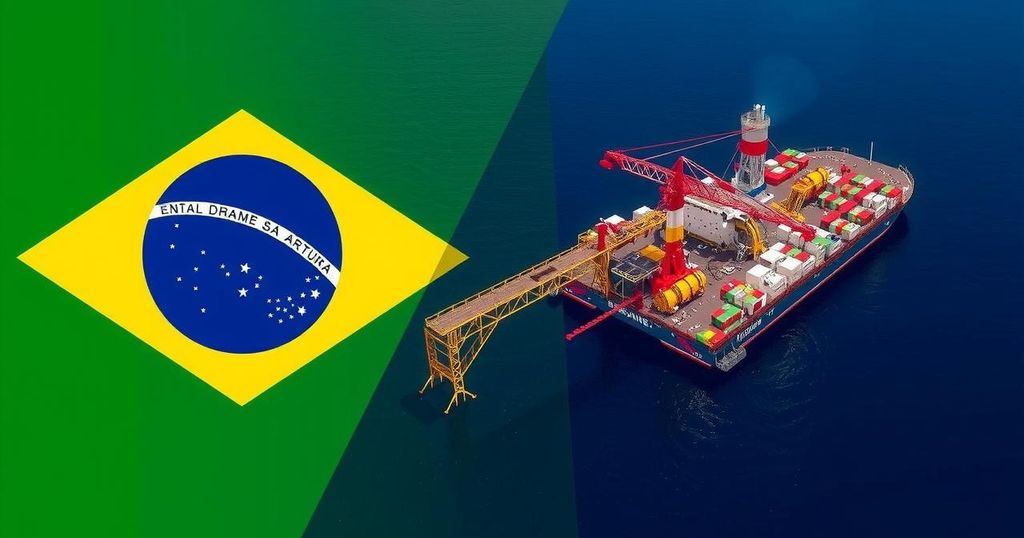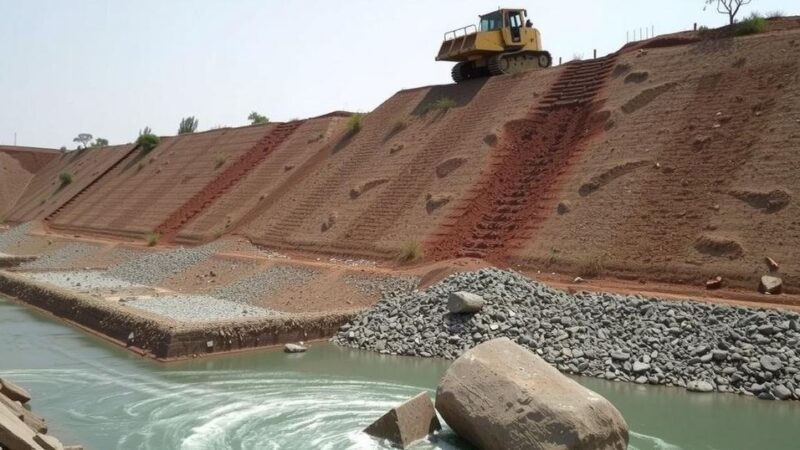Brazil is advancing its plans to import gas from Argentina’s Vaca Muerta, following a recent memorandum of understanding with Argentina’s Energy Ministry. The agreement aims for imports to potentially reach 30 million cubic meters daily by 2030, despite ongoing political tensions between the two presidents. The initiative seeks to identify infrastructure needs while promoting economic ties and ensuring the viability of gas supplies.
Brazil is progressing with its initiative to import natural gas from Argentina’s Vaca Muerta formation, signaling that economic collaborations can persist despite complex political dynamics. On Monday, Brazil’s Energy Ministry formalized a memorandum of understanding with Argentina, aimed at addressing infrastructure requirements to enhance natural gas supplies. This arrangement is expected to facilitate imports reaching 30 million cubic meters per day by 2030, contributing to Brazil’s strategy to bolster industrial advancement through increased fuel usage. Despite the ongoing political tensions between Brazilian President Luiz Inácio Lula da Silva and Argentine President Javier Milei, this agreement exemplifies the resilience of trade engagements. The bilateral initiative will establish a working group tasked with determining necessary measures for making the supply of Argentine natural gas economically feasible. Argentina’s vast gas resources require market expansion for optimal production growth, further incentivizing this collaboration. Brazil anticipates acquiring two million cubic meters of gas daily by early next year from Argentina’s Neuquén and Río Negro provinces, escalating to ten million cubic meters within three years. The projected pricing from Vaca Muerta is expected to be approximately half of the current average cost of $14 per BTU, presenting a significant economic advantage. Initial plans involve utilizing an existing pipeline traversing Bolivia for gas transportation, although unresolved transportation costs remain a concern. Historically, Bolivia served as a gas supplier to both Brazil and Argentina, but diminishing production has necessitated alternative strategies. Future infrastructure developments might include new pipelines through Argentina or Paraguay, along with potential liquefied natural gas shipments from Argentine terminals to Brazilian ports.
The proposed gas import agreement between Brazil and Argentina emerges amidst a backdrop of fluctuating political relations characterized by mutual criticism and strategic rivalry. President Javier Milei of Argentina has publicly challenged Brazilian President Lula da Silva’s ambitions on the global platform, complicating diplomatic ties. However, the signed memorandum indicates a significant shift where economic interests can foster cooperation even in the face of political strife. With Argentina possessing the vast Vaca Muerta gas reserves, this partnership holds potential for both countries to stabilize their energy resources while promoting economic growth.
In conclusion, Brazil’s intention to import natural gas from Argentina stands as a testament to the ability of economic partnerships to transcend political disagreements. The memorandum of understanding lays the groundwork for enhanced gas supplies, with significant projections for future import volumes. As Brazil seeks to leverage Argentine resources for industrial growth, this initiative reflects the necessity of cooperative measures to address energy demands and market reliability.
Original Source: www.batimes.com.ar







